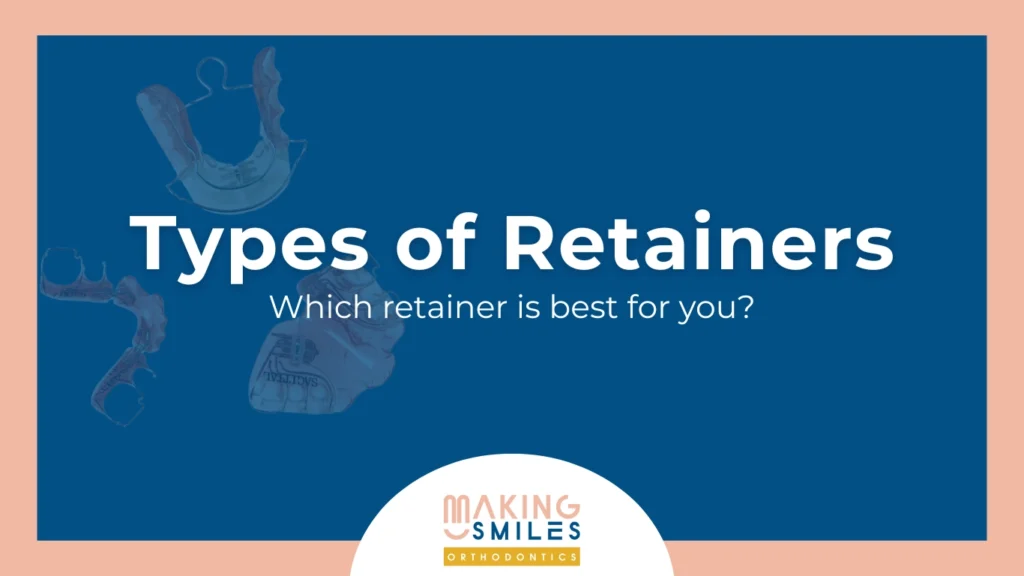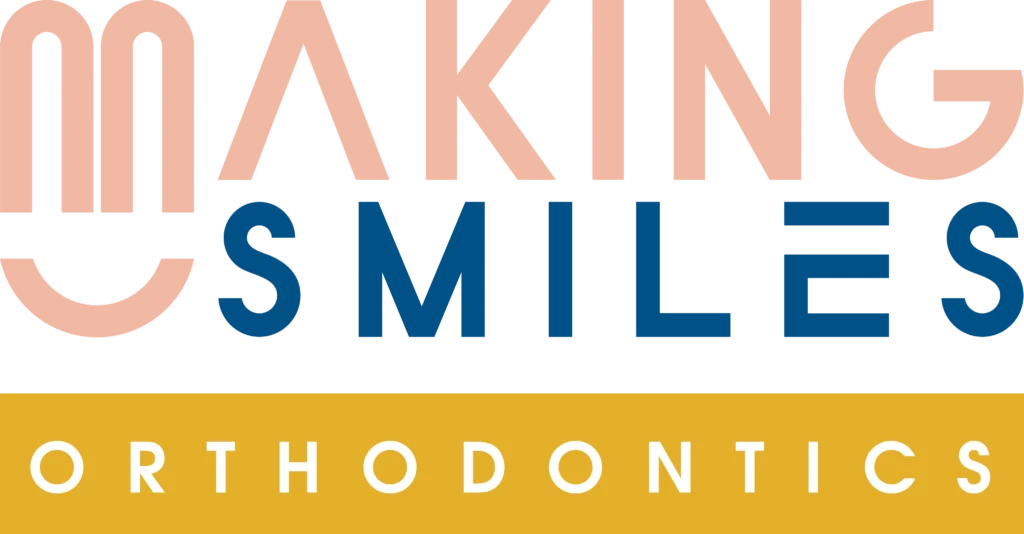
Retainers – Which Retainer is Best for You?
If you’ve completed your orthodontic treatment, congratulations! You’re very close to achieving your perfect smile. However, the final step in the orthodontic process is crucial: wearing retainers. While this step is essential to maintain your teeth in their correct position, many people have questions about which retainer is best for them, whether retainers can affect their speech, or what to do if they lose or break a retainer. In this blog, we’ll answer those questions clearly and simply, so you can feel confident and well-informed.
What is a Retainer?
A retainer is a custom-made device that is used to keep your teeth in their new position after orthodontic treatment. While your teeth may seem stable after your braces are removed, retainers are necessary to prevent your teeth from sliding back to their original position. Without them, you risk losing the results of your treatment.
Types of Retainers: Which is Best for You?
At Making Smiles Orthodontics, we offer different types of retainers to meet the unique needs of our patients. The two most common types are fixed retainers and removable retainers. Each has its benefits and drawbacks, depending on your lifestyle, needs, and preferences.
- Removable Retainers (Vivera Retainers)
Vivera Retainers are a popular option among our patients. They are made from durable, transparent material, which makes them comfortable and discreet. These retainers can be removed when necessary, such as when eating or brushing your teeth.
Advantages:
- Comfortable and discreet.
- Easy to clean.
- Can be worn full-time or just at night, depending on your orthodontist’s instructions.
- Made from high-quality materials that last longer.
Disadvantages:
- Requires responsibility to avoid losing or forgetting to wear it.
- Fixed Retainers
Fixed retainers are thin wires that are placed on the back of your teeth. This option is ideal for those who have trouble remembering to wear removable retainers, as they stay in place permanently.
Advantages:
- Can’t be lost or forgotten.
- Doesn’t interfere with daily life or speech.
Disadvantages:
- Can be harder to clean.
- Requires a little more time in the office for placement.
Can Retainers Affect My Speech?
One of the most common concerns when wearing retainers is whether they will affect your ability to speak. While everyone is different, most patients experience a slight adjustment period when they first start wearing removable retainers like the Vivera Retainers. This may include a small difficulty pronouncing certain words at first.
Is this normal? Yes! It’s completely normal. At first, your mouth is getting used to the new shape of the retainer, but over time, you’ll adjust. The key is to be patient. Most people get used to their retainers quickly, and any speech difficulties will disappear within a few days.
If you feel that the difficulty persists longer than expected, don’t hesitate to contact us to adjust the retainer and ensure it fits perfectly in your mouth.
What If I Lose or Break My Retainer?
While retainers are designed to be durable, they are not indestructible. If you lose or break your retainer, don’t panic. Here are the steps you should take:
- Don’t stop wearing it: If you have a spare retainer, continue using it while we work on a replacement. If you don’t have a spare, try wearing your previous orthodontic device (if you still have it) until we can make a new mold and create a new retainer.
- Contact us immediately: Call our office at (256) 403-7404 to schedule an appointment as soon as possible. We can quickly make a new retainer, and if necessary, adjust your treatment to ensure your smile stays perfect.
- Avoid the temptation to skip wearing it: Even if your retainer is temporarily lost or broken, it’s important to continue maintaining the shape of your teeth. This will help prevent your teeth from shifting back.
Tips for Caring for Your Retainers
- Clean regularly: Be sure to clean your retainer every day with lukewarm water and a mild soap. Avoid hot water, as it can warp the material.
- Store it properly: Always keep your retainer in its case when you’re not using it to prevent it from getting lost or damaged.
- Avoid hard foods: Don’t bite on hard objects, like pens or ice, while wearing your retainer.
5 Frequently Asked Questions About Retainers
How long should I wear my retainer after orthodontic treatment? The duration depends on your orthodontist’s instructions. Generally, it’s recommended to wear it full-time for a few months, and then just at night for the rest of the time.
2. Can I eat with my retainer in? No, it’s best to remove your retainer before eating to prevent damage. Additionally, food can get trapped in the retainer, making it harder to clean.
3. How can I tell if my retainer fits properly? If you feel discomfort or pain when wearing it, or if the retainer moves too much in your mouth, it’s important to visit your orthodontist for an adjustment.
4. What should I do if I can’t find my retainer? Contact us immediately to schedule an appointment. We can quickly make a replacement to prevent your teeth from shifting.
5. Will my retainer affect my ability to speak? It’s normal to have some difficulty speaking at first, but most patients adjust quickly. If the problem persists, let us know, and we can check the fit of your retainer.
If you have more questions or need to schedule an appointment, don’t hesitate to call us at (256) 403-7404. We’re here to help you keep your smile perfect and healthy!
